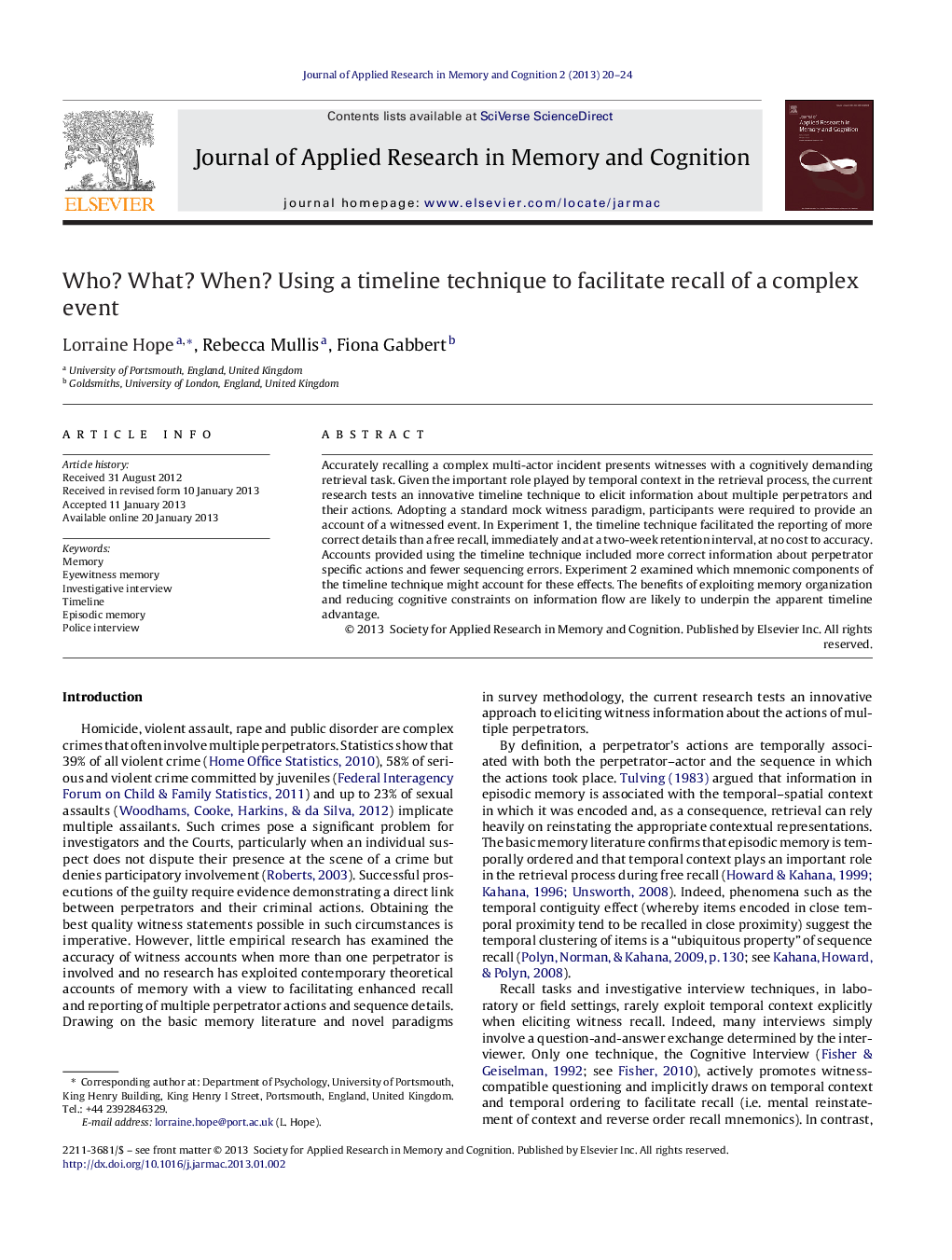| Article ID | Journal | Published Year | Pages | File Type |
|---|---|---|---|---|
| 881578 | Journal of Applied Research in Memory and Cognition | 2013 | 5 Pages |
Accurately recalling a complex multi-actor incident presents witnesses with a cognitively demanding retrieval task. Given the important role played by temporal context in the retrieval process, the current research tests an innovative timeline technique to elicit information about multiple perpetrators and their actions. Adopting a standard mock witness paradigm, participants were required to provide an account of a witnessed event. In Experiment 1, the timeline technique facilitated the reporting of more correct details than a free recall, immediately and at a two-week retention interval, at no cost to accuracy. Accounts provided using the timeline technique included more correct information about perpetrator specific actions and fewer sequencing errors. Experiment 2 examined which mnemonic components of the timeline technique might account for these effects. The benefits of exploiting memory organization and reducing cognitive constraints on information flow are likely to underpin the apparent timeline advantage.
► Accurately recalling a complex multi-actor incident presents witnesses with a cognitively demanding retrieval task. ► Adopting a mock witness paradigm, we tested an innovative timeline technique to elicit information about a complex crime. ► The timeline technique facilitated reporting of more correct details than a free recall, at no cost to accuracy, both immediately and after a delay. ► Timeline reports included more correct information about perpetrator specific actions and fewer incident sequencing errors. ► Exploiting memory organization and reducing constraints on information flow may underpin the apparent timeline advantage.
